 As reimbursement evolves from fee for service to alternative payment models, incentives will shift from treating sickness to keeping the population healthy. New investments will be made in technologies that reach into the home and enhance care team communication. 2016 saw an acceleration of telemedicine/telehealth. 2017 will see exponential growth. Telemedicine is hard to define. It could be real time video teleconferencing between clinicians (a consult), between a patient and clincian (a visit), or group to group (tumor board discussion). It could be the transmission of a static photograph, such as the poisonous mushroom/plant teleconsultation I do 900 times per year. It could be secure texting to coordinate patient care...
As reimbursement evolves from fee for service to alternative payment models, incentives will shift from treating sickness to keeping the population healthy. New investments will be made in technologies that reach into the home and enhance care team communication. 2016 saw an acceleration of telemedicine/telehealth. 2017 will see exponential growth. Telemedicine is hard to define. It could be real time video teleconferencing between clinicians (a consult), between a patient and clincian (a visit), or group to group (tumor board discussion). It could be the transmission of a static photograph, such as the poisonous mushroom/plant teleconsultation I do 900 times per year. It could be secure texting to coordinate patient care...
News
Peer Learning Helps Tanzania Reach New Ground with Open Data
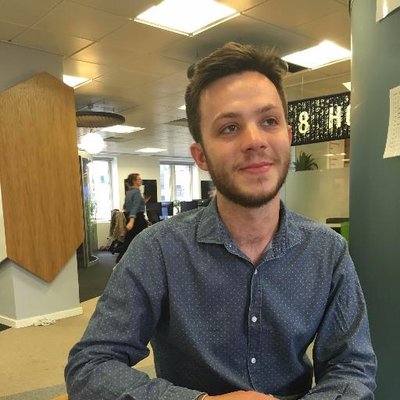 When we introduced Tanzanian open data officials to their UK counterparts they shared home truths about problems, gaining new perspective and inspiration to engage users, communicate more and seek support from those who can help. Learning from peers is essential to building momentum behind new open data programmes. As part of our work with the Tanzanian government we were delighted to facilitate their meeting with key figures from government, NGOs, businesses, NGOs and startups in the UK, during a London Study Tour...
When we introduced Tanzanian open data officials to their UK counterparts they shared home truths about problems, gaining new perspective and inspiration to engage users, communicate more and seek support from those who can help. Learning from peers is essential to building momentum behind new open data programmes. As part of our work with the Tanzanian government we were delighted to facilitate their meeting with key figures from government, NGOs, businesses, NGOs and startups in the UK, during a London Study Tour...
- Login to post comments
- News
Open Government Partnership Celebrates Open Innovation in Africa
 As diverse delegates gather in Cape Town this week for the OGP regional meeting, we reflect on open innovation, ODI projects and promising initiatives in the continent. This week, South Africa hosts the third Open Government Partnership (OGP) Africa Regional Meeting 2016. The two-day event brings together a wide range of delegates from African governments and civil society, startups and international organisations. It offers a platform to share lessons from programmes across the continent, with a particular focus on promoting sustainable development...
As diverse delegates gather in Cape Town this week for the OGP regional meeting, we reflect on open innovation, ODI projects and promising initiatives in the continent. This week, South Africa hosts the third Open Government Partnership (OGP) Africa Regional Meeting 2016. The two-day event brings together a wide range of delegates from African governments and civil society, startups and international organisations. It offers a platform to share lessons from programmes across the continent, with a particular focus on promoting sustainable development...
- Login to post comments
- News
Patents: The Next Open Access Fight
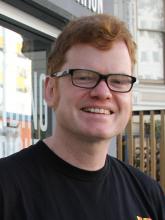 There’s been a lot of talk lately about the state of publicly funded research. Many, including EFF, have long called on Congress to pass a law requiring that publicly funded research be made available to the public. With strong support for FASTR (the Fair Access to Science and Technology Research Act) in both parties, Vice-President Biden making open access a major component of his Cancer Moonshot initiative, and presumptive presidential nominee Hillary Clinton including access to research in her platform, signs are looking good that Congress will finally pass an open access mandate. It’s just a matter of when...
There’s been a lot of talk lately about the state of publicly funded research. Many, including EFF, have long called on Congress to pass a law requiring that publicly funded research be made available to the public. With strong support for FASTR (the Fair Access to Science and Technology Research Act) in both parties, Vice-President Biden making open access a major component of his Cancer Moonshot initiative, and presumptive presidential nominee Hillary Clinton including access to research in her platform, signs are looking good that Congress will finally pass an open access mandate. It’s just a matter of when...
- Login to post comments
- News
How I Use Linux for Theoretical Physics
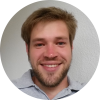 In 2008, I started studying physics and got in contact with Linux, since a bunch of people used it for data analysis and simulations. Comprehension came fast and easy with such people around, and I was strongly encouraged to get things done with Linux. I installed Ubuntu on my notebook, and soon got familiar with Bash and the standard tools. After some years I turned to theoretical physics. While I was writing my master's thesis I gained access to a workstation running Scientific Linux, and a cluster system with a few hundred cores. I was impressed that each of my peers had implemented his own customized workflow, and that it was actually possible to work entirely with the keyboard, which is inconceivable for a Windows user...
In 2008, I started studying physics and got in contact with Linux, since a bunch of people used it for data analysis and simulations. Comprehension came fast and easy with such people around, and I was strongly encouraged to get things done with Linux. I installed Ubuntu on my notebook, and soon got familiar with Bash and the standard tools. After some years I turned to theoretical physics. While I was writing my master's thesis I gained access to a workstation running Scientific Linux, and a cluster system with a few hundred cores. I was impressed that each of my peers had implemented his own customized workflow, and that it was actually possible to work entirely with the keyboard, which is inconceivable for a Windows user...
- Login to post comments
- News
Preventing the Next Heartbleed and Making FOSS More Secure
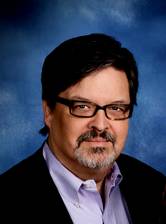 David Wheeler is a long-time leader in advising and working with the U.S. government on issues related to open source software. His personal webpage is a frequently cited source on open standards, open source software, and computer security. David is leading a new project, the CII Best Practices Badging project, which is part of the Linux Foundation's Core Infrastructure Initiative (CII) for strengthening the security of open source software. In this interview he talks about what it means for both government and other users...
David Wheeler is a long-time leader in advising and working with the U.S. government on issues related to open source software. His personal webpage is a frequently cited source on open standards, open source software, and computer security. David is leading a new project, the CII Best Practices Badging project, which is part of the Linux Foundation's Core Infrastructure Initiative (CII) for strengthening the security of open source software. In this interview he talks about what it means for both government and other users...
- Login to post comments
- News
A Fresh Look at the U.S. Draft Policy on 'Federal Sourcing'
 In a recent article in Government Computer News, I looked at the challenge of reshaping federal IT with open source without go-it-alone government-off-the-shelf approaches to open source software. In that article, I noted that the growing use of open source software by governments has shifted from "whether to use" to "how to deploy." The latest evidence for this is a draft Federal Sourcing Policy announced by the U.S. Office of Management and Budget (OMB), which drives U.S. government (USG) procurement and IT policy...
In a recent article in Government Computer News, I looked at the challenge of reshaping federal IT with open source without go-it-alone government-off-the-shelf approaches to open source software. In that article, I noted that the growing use of open source software by governments has shifted from "whether to use" to "how to deploy." The latest evidence for this is a draft Federal Sourcing Policy announced by the U.S. Office of Management and Budget (OMB), which drives U.S. government (USG) procurement and IT policy...
- Login to post comments
- News
The Rise of Telemedicine
- Login to post comments
- News
Open Is the Solution to Improving 21st Century Education
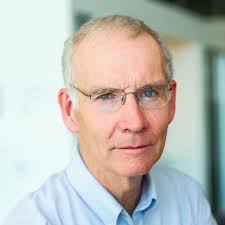 Much of the Internet runs Linux and open source software, yet in most of our schools—whether PK-12 or higher education—Linux and open source software are given short shrift. Linux has made serious inroads on hand-held devices, the desktop, and the Internet of things (IoT) that use platforms such as Raspberry Pi, Galileo, and Arduino. Despite this astounding growth, a relatively small number of secondary and post-secondary schools offer technology training that prepares students for increasingly in-demand technical skills. The growth of the maker movement and the concurrent interest in STEM skills, which include coding and ethical hacking, may provide a much-needed impetus to change this trend. The problem for most schools is finding the mentors and exemplars of this paradigm...
Much of the Internet runs Linux and open source software, yet in most of our schools—whether PK-12 or higher education—Linux and open source software are given short shrift. Linux has made serious inroads on hand-held devices, the desktop, and the Internet of things (IoT) that use platforms such as Raspberry Pi, Galileo, and Arduino. Despite this astounding growth, a relatively small number of secondary and post-secondary schools offer technology training that prepares students for increasingly in-demand technical skills. The growth of the maker movement and the concurrent interest in STEM skills, which include coding and ethical hacking, may provide a much-needed impetus to change this trend. The problem for most schools is finding the mentors and exemplars of this paradigm...
- Login to post comments
- News
The Open Patient: Advocating for Open Access to Medical Data
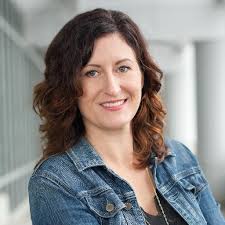 Steven Keating had always been interested in data and learning about things, which is why he volunteered to do a research scan when he was a student. The scan revealed an abnormality. In 2014, the abnormality had grown into a massive tumor. Soon he learned that there were many barriers keeping him from accessing his own data. "And that's what I've been sharing, which is this question: How come as a patient we're last in line for our own data? How come my doctors and my university researchers can see my tumor genome and I can't?"
Steven Keating had always been interested in data and learning about things, which is why he volunteered to do a research scan when he was a student. The scan revealed an abnormality. In 2014, the abnormality had grown into a massive tumor. Soon he learned that there were many barriers keeping him from accessing his own data. "And that's what I've been sharing, which is this question: How come as a patient we're last in line for our own data? How come my doctors and my university researchers can see my tumor genome and I can't?"
- Login to post comments
- News
Do We Really Need More Doctors? How About Trying to Have Healthier Folks?
 Health care needs a better business model. HHS reports that U.S. health care spending will surpass $10,000 per person this year, will grow almost 6% annually for the foreseeable future, and will consume over 20% of GDP by 2025. About half of our spending goes for labor costs, with health care employment remaining one of the "bright spots" in our economy. Indeed, health care jobs continued to soar even when the economy tanked in our most recent recession. Despite that steady growth, we continue to talk about a physician shortage, especially for primary care. Medical school enrollment is at new highs, yet it is not projected to dent the demand...
Health care needs a better business model. HHS reports that U.S. health care spending will surpass $10,000 per person this year, will grow almost 6% annually for the foreseeable future, and will consume over 20% of GDP by 2025. About half of our spending goes for labor costs, with health care employment remaining one of the "bright spots" in our economy. Indeed, health care jobs continued to soar even when the economy tanked in our most recent recession. Despite that steady growth, we continue to talk about a physician shortage, especially for primary care. Medical school enrollment is at new highs, yet it is not projected to dent the demand...
- Login to post comments
- News